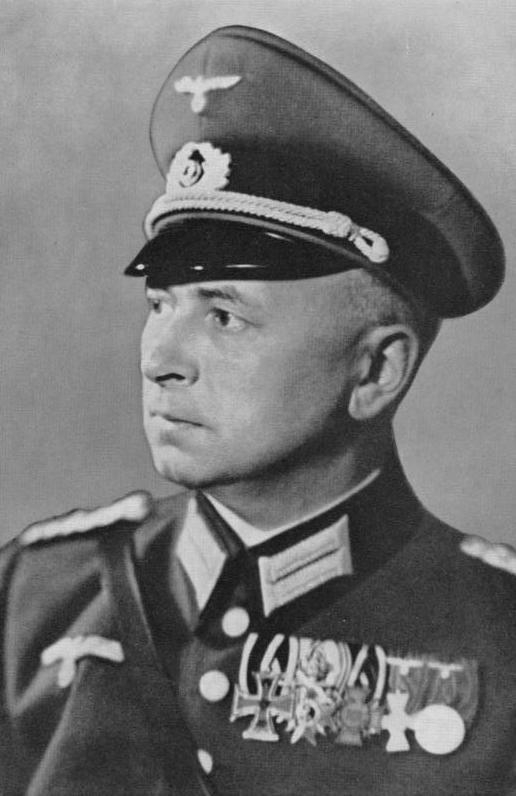
Figure 1.--. |

|
Major General Eduard Wagner (1894 - 1944) was an important German World War II general, but often not appearing in World War II histories. The reason for this was that he was the Heer's quartermaster-generals. He did not command cpmbat troops which is who military historians tend to focus. Wagner as the Quatermaster General was the individual primarily responsible for the Heer's logistics. Wagner had the overall responsibility for security in the Ostheer's rear areas, and thus bore responsibility for the rear-security units after Hitler launched Barbarossa. In this capacity he was the primary Wehrmacht office coordinating with the SS Einsatzgruppen which began the large-scale murder of Jews. Wagner was involved in war crimes from the very beginning of the War in Poland (1939). But the Einsatzgruppen murder camapign was war crimes on a spectacular level and Wagner was a central fugure, providing the Einstazgruppen both logistical and manpower support in the occupied areas under the Heer's jurisdiction. He is a prime example of the character of the Wehrmacht officers that turned agianst Hitler. There were some like Stauffenberg and Canaris that were horrified by NAZI barbarism, but far more German officers were concerned with the fact that Germnany was losing the War. Wagner was a key player in the July Bomb Plot, providing the conspirators a plane. Actually many of those who opposed Hitler, like Wagner, were participating in war crimes. Given the importance of logistics, especilly in the East, Wagner as Quarter Master was a key fugure. The German failure in the East was primarily a logistical failure, both Barbarossa (1941) and Blau (1942). That failure was not, however, Wagner's fault. He was respibsiblle for logistics, but not for the miitary planning and decisions that created the logistical disasters. In fact, Wagner warned OKW that the Ostheer in Barbarossa could be supplied within 500 kilometers (300 miles) of the startline, but logistics would become a serious problem forther east. [Murray and Millett, p 119.] Then with Blau plan foresaw punching even deeper east into the Soviet Union, Wagner issued the same warning. And his warnings proved amazingly prescient. His warnings, however, were ignored. Most German generals thpught that logistics were beneath their dignity. Prestige and glory came from combat and opperational brilliance. Thus Wanger did not have the prestige needed to pudh hos warnings. Interesringly, the top Amnerican military commander, General Marshal, chosen by President Roosevelt was primarily a master of logistics. Hitler had 84 Gernan generals executed during the War. Wagner shot himself before the Gestapo got to him.
Murray, Williamson and Allan R. Millet. A War to be Won: Fighting the Second World War (Belknap: Cambridge, Massaschusetts, 2009), 656p
Navigate the CIH World War II Section:
[Return to Main World War II R-Z biography page]
[Return to Main World War II biography page]
[Return to Main World War II essay page]
[Biographies]
[Campaigns]
[Children]
[Countries]
[Deciding factors]
[Diplomacy]
[Geo-political crisis]
[Economics]
[Home front]
[Intelligence]
[Resistance]
[Race]
[Refugees]
[Technology]
[Bibliographies]
[Contributions]
[FAQs]
[Images]
[Links]
[Registration]
[Tools]
[Return to Main World War II page]
[Return to Main war essay page]
